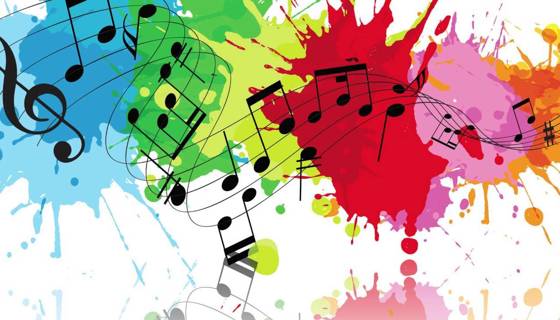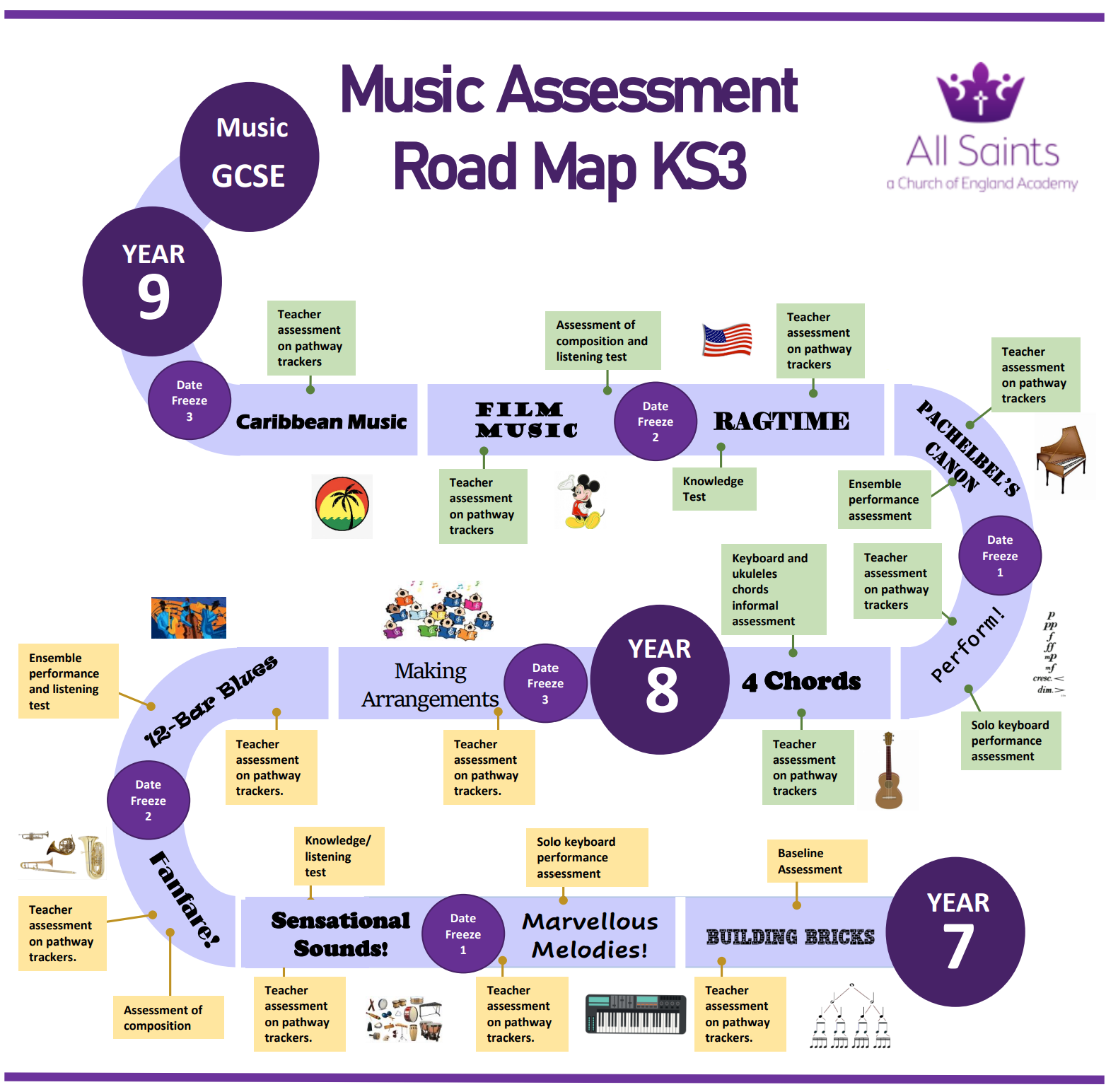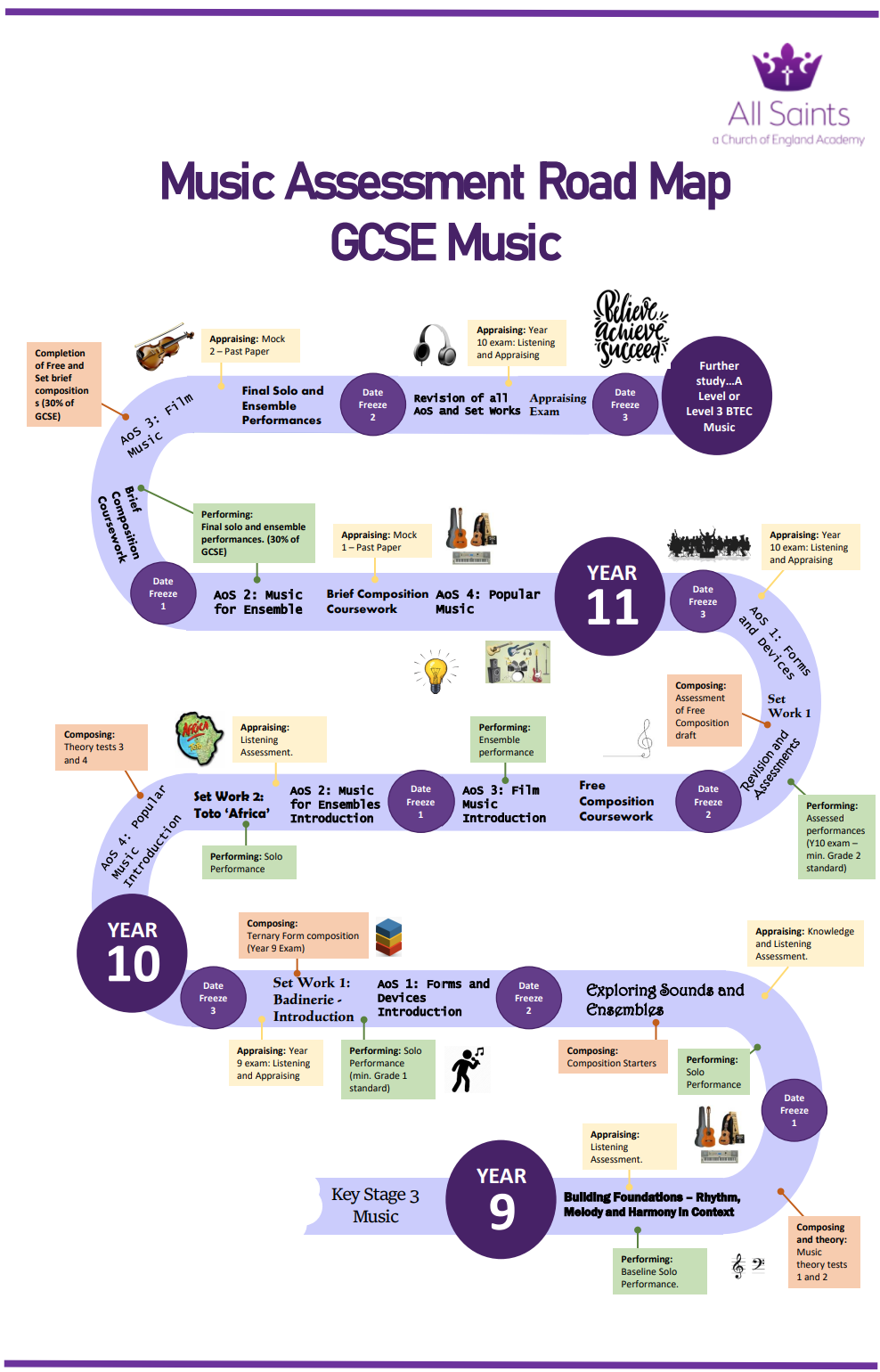- Home
- Curriculum
- Our Courses
- Music
Music
Back
“Music gives a soul to the universe, wings to the mind, flight to the imagination and life to everything." Plato
Our vision for Music at All Saints
Throughout our Music course students will be inspired to develop both a love of music and their skills as musicians, and so increase their self-confidence, creativity and sense of achievement. During the Music course, students will have the opportunity to:
- perform, listen to, review and evaluate music across a range of historical periods, genres, styles and traditions, including the works of the great composers and musicians
- learn to sing and to use their voices, to create and compose music on their own and with others, have the opportunity to learn a musical instrument, use technology appropriately and have the opportunity to progress to the next level of musical excellence
- understand and explore how music is created, produced and communicated, including through the interrelated dimensions: pitch, duration, dynamics, tempo, sonority, texture, structure and appropriate musical notation.
5 important things about music at All Saints Academy
1. Learning to read, write and understand notation is an important part of our learning. We see understanding of the language of music as a gateway to independence and opportunity to experience and explore different music. However, sound always comes first – notation, in whatever from, is the tool with which we record sound.
2. We listen to music at the start of every lesson. We listen to music from all genres, times and places. We are currently using the recommended listening list from the Model Music Curriculum. We are active listeners and our listening leads to discussion and exploration of both AO3 and AO4 type questions in preparation for GCSE. This informal listening and discussion leads to more formal listening assessment which tests our appraising skills and use of musical vocabulary.
3. Practical music making is at the heart of all we do. We work in the medium of sound with the resources that we have available. We sing wherever possible, both to develop our vocal skills and to aid our understanding of other concepts (such as sight singing, or singing chords). We acknowledge the well-being benefits that singing as a group bring. We currently use keyboards as our main instrument and build our keyboard skills systematically through the schemes of work. We encourage independent learning, teaching students how to practice.
4. Extra-curricular music making is a natural extension of our classroom work. Choirs, instrument ensembles and other ad hoc groups extend our learning and allow us to make music with students from other classes and other years. We enjoy singing and playing together and aim to create excellence in what we do. We share our music with others in and outside of our school community through events at Christmas, Easter and in the summer. We work with Tees Valley Music Service to provide instrumental and voice lessons and are currently building the numbers taking up this opportunity.
5. Our curriculum is progressive throughout the school. The topic focused units at KS3 are designed to progressively build skills in singing, playing, listening, reading and writing notation and composing music. These lead into the GCSE course where students are encouraged to gradually develop their own composition style, perform on their own instruments and analyse music in greater depth and with a more technical musical vocabulary.
How we will achieve this
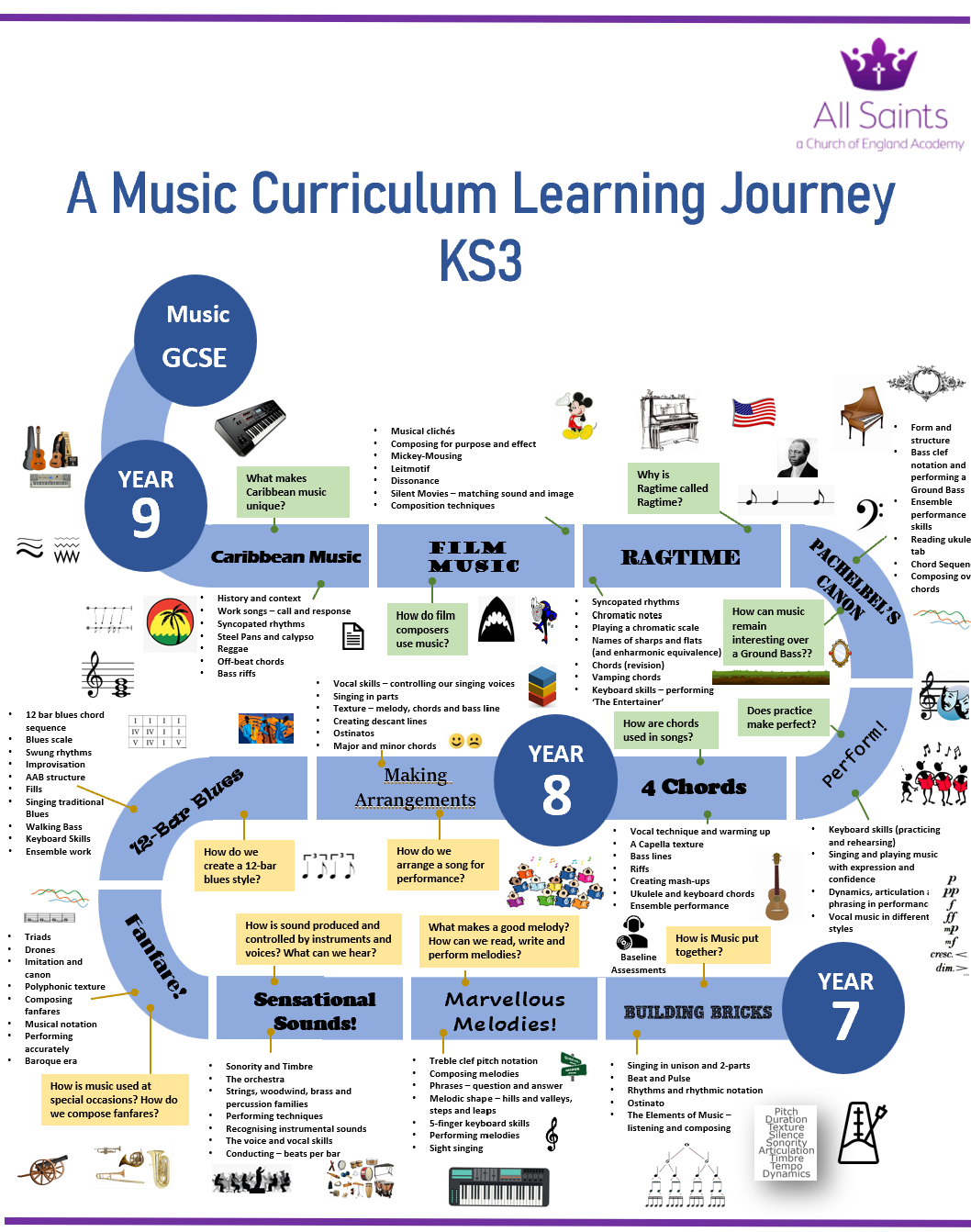
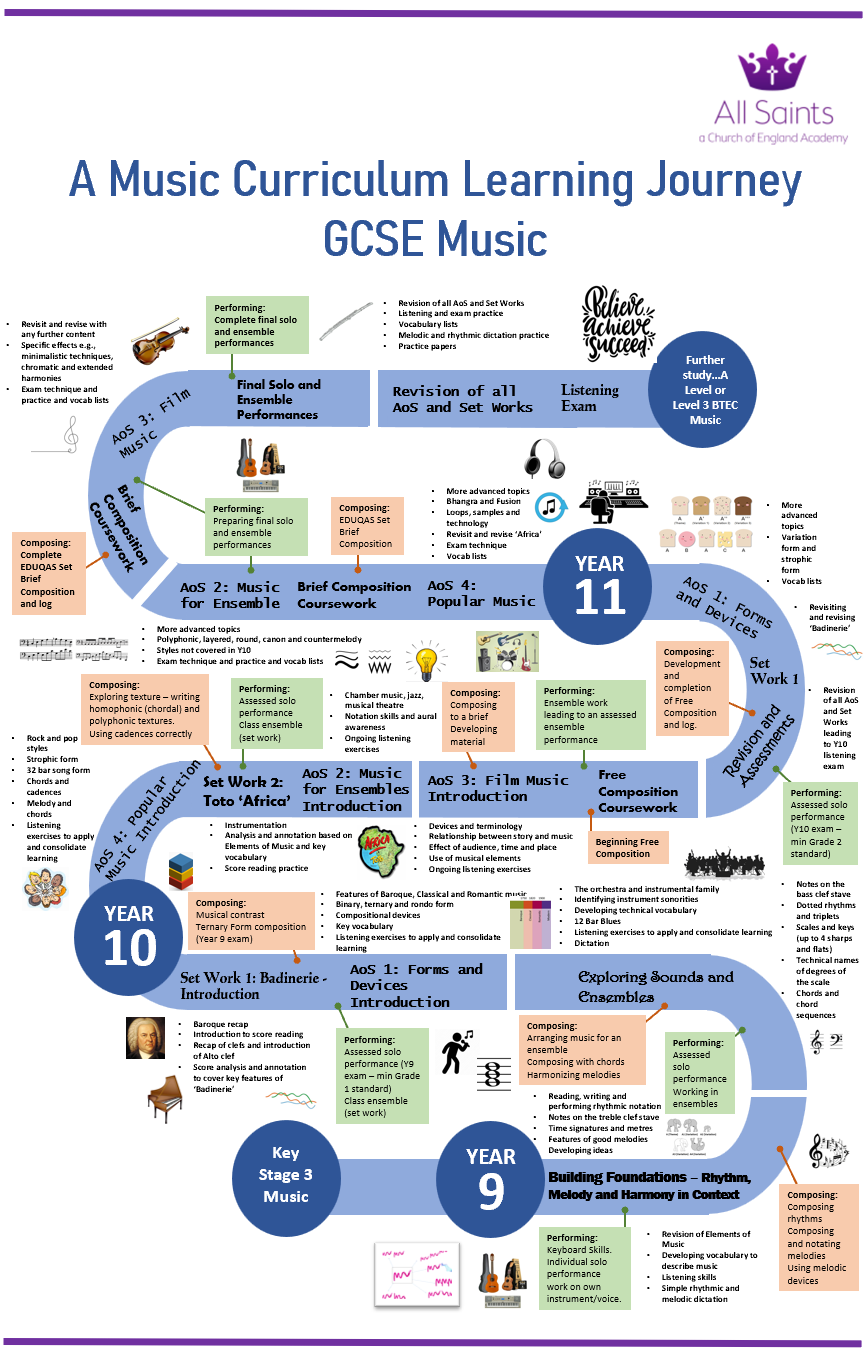
How we will assess Music
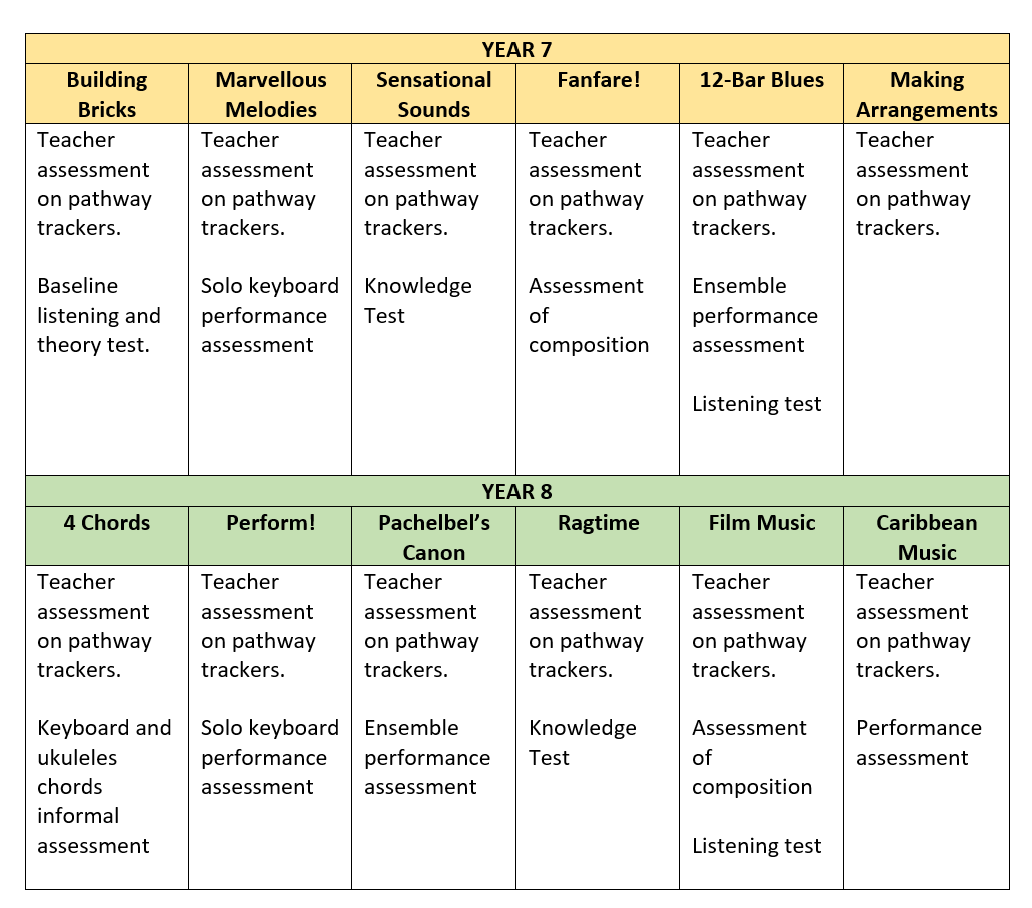
Assessment in GCSE Music
KS4 – GCSE
Students opting to study music at KS4 follow the Eduqas syllabus.
Formative assessment is ongoing throughout music lessons, with individual teacher support and feedback for performance and composition work. Listening and appraising tasks are a regular part of both class lessons and homework assignments.
The main summative assessment points are highlighted in the table below.
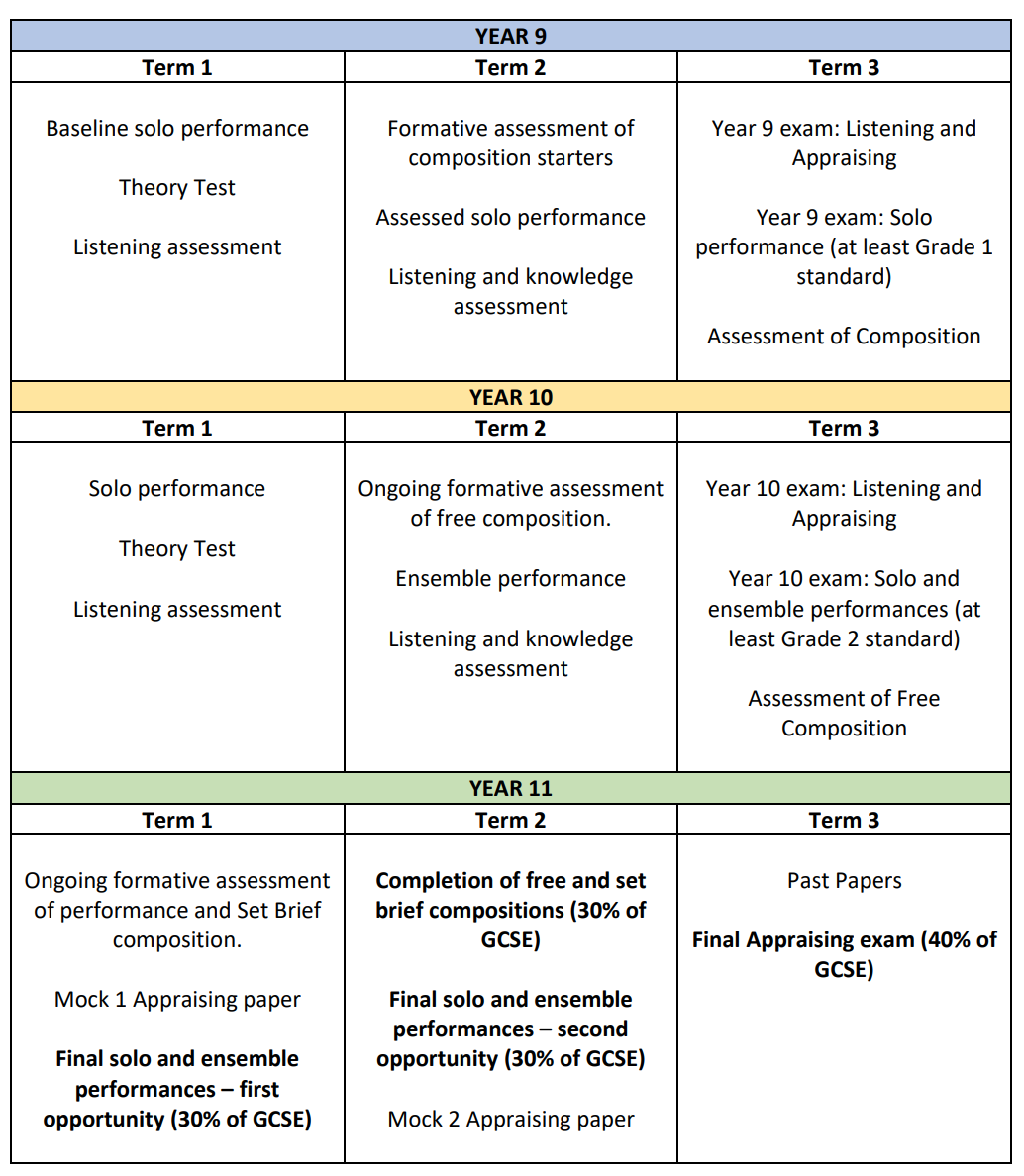
What is the impact of our work?
Christmas Performances:
Cultural Capital Opportunities
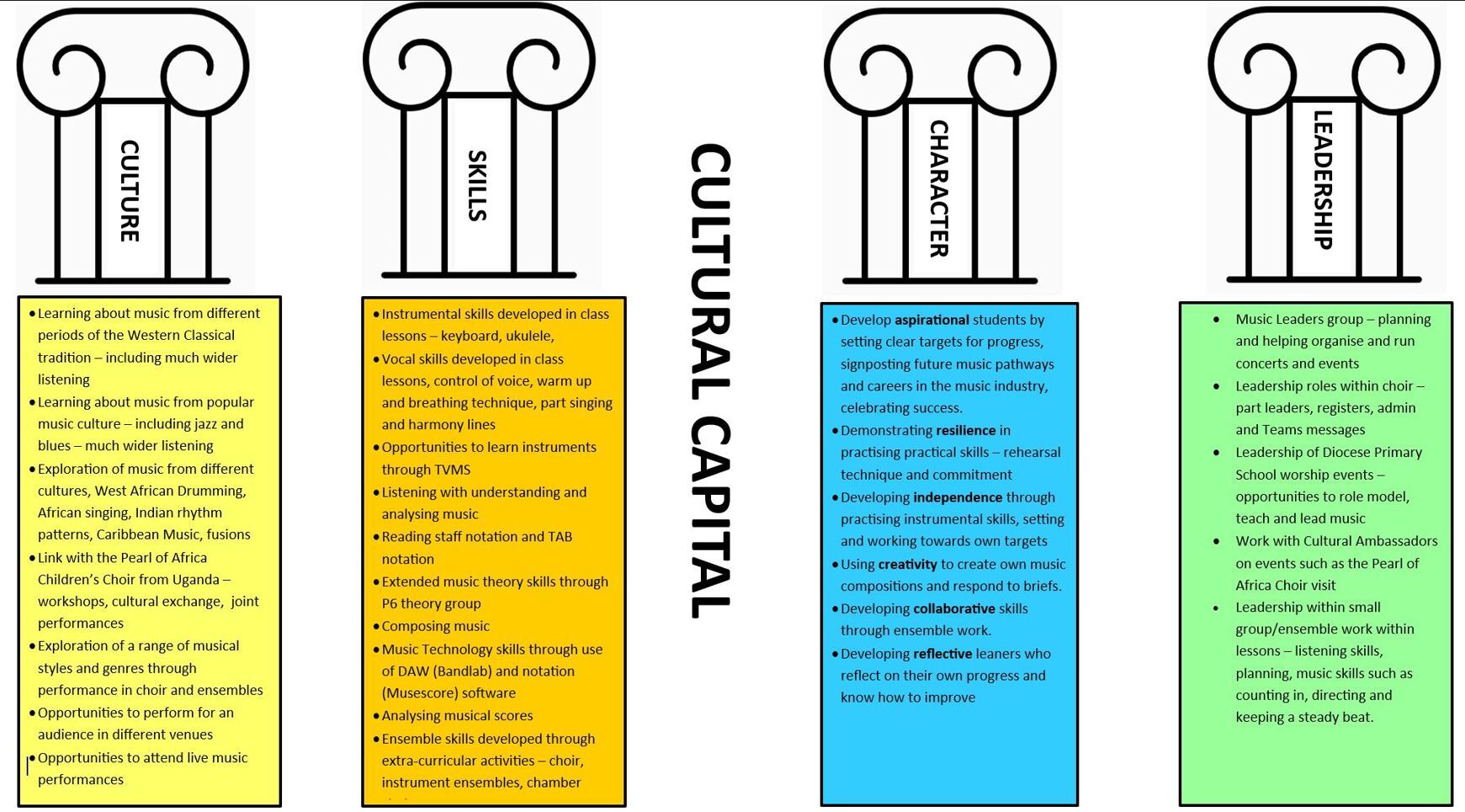
- Participation in choir, band and other extra-curricular activities
- Opportunities to perform in school concerts and shows
- Opportunities to lead music within worship
- Participation in Tees Valley Music Service groups such as TVYC and TVYO
- Representing the Academy at events such as Big Sing, Christmas Services and Diocese Services
Music Prefect
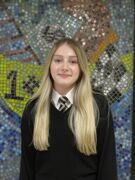
Hello, my name is Phoebe and I am the music perfect, as music prefect I hope to support Mrs Connor in the music department and help students to feel included and involved into the music side of all saints I have always loved music and do GCSE music as a option and love spending time in lessons working on things I enjoy. I hope to support younger students who have a passion for music and help others find their love for music.
How you can help your child
KS3 Knowledge Organisers
Year 7
Year 8
KS4 Knowledge Organisers
| Subject Documents |
|---|
| Music Development Plan Summary 2025 |

